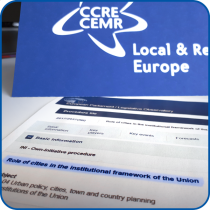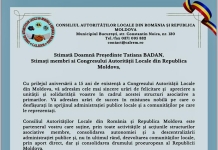For cities and, more broadly, local government associations, this is undoubtedly good news. Indeed, it explicitly advocates the consolidation of the involvement of local government associations, like CEMR, in the design of EU policy. Furthermore, it calls for them to become key partners to the EU Institutions through a permanent structured dialogue mechanism.
Today members of the European Parliament voted in favour a resolution in plenary. This resolution includes the request for CEMR to be permanently involved in the design of EU policy making, by way of a structured dialogue, where local and regional interests are concerned. This marks noteworthy step towards the role of national associations in the institutional framework of the Union.
”Local government associations have three solid arguments in favour of having a formal role in the institutional framework of the Union: they provide proximity, pre-legislative input and expertise.
By their very nature, mayors and local councillors are in a unique position to understand citizens’ needs and make EU legislation rooted in reality. But on their own, mayors or councillors are limited in their efforts to provide Europe-wide expertise and presence, crucial to effective policy-making. Only local government associations, with strong connections to day-to-day issues, can do this.
They are the best placed to provide valuable and targeted input throughout the legislative process, but also in the pre-legislative stage when policy options are still being defined. This technical insight and advice is based on the knowledge of local leaders, practitioners and experts who are confronted with the reality on the ground.
A longstanding pledge
Back in 2001, the Commission, in its White Paper on Governance, expressed the need for more systematic dialogue with representatives of local and regional government through their national and European associations at an early stage in policy making.
15 years later, some of the White Paper’s hopes became a reality with the arrival of the EU Urban Agenda, which led to the creation of 12 partnerships.
This model of governance in partnership is the way to go. It allows member states, the Commission, the Parliament, and local governments, on an equal basis, to review existing legislation and shape future policies.
But the story doesn’t end there. It is now up to the Commission and the Council to demonstrate how the concrete proposals that emerge from the EU Urban Agenda Partnerships can be taken on board in future legislative proposals.
In a Europe facing much division, member states and the European institutions must deepen their roots in local communities. And who else than local government and their associations to constitute the necessary link to Europeans. Let’s hope that the Commission and the Council will take into account the Parliaments resolution and recognise that this way of policy-making is a game-changer.









